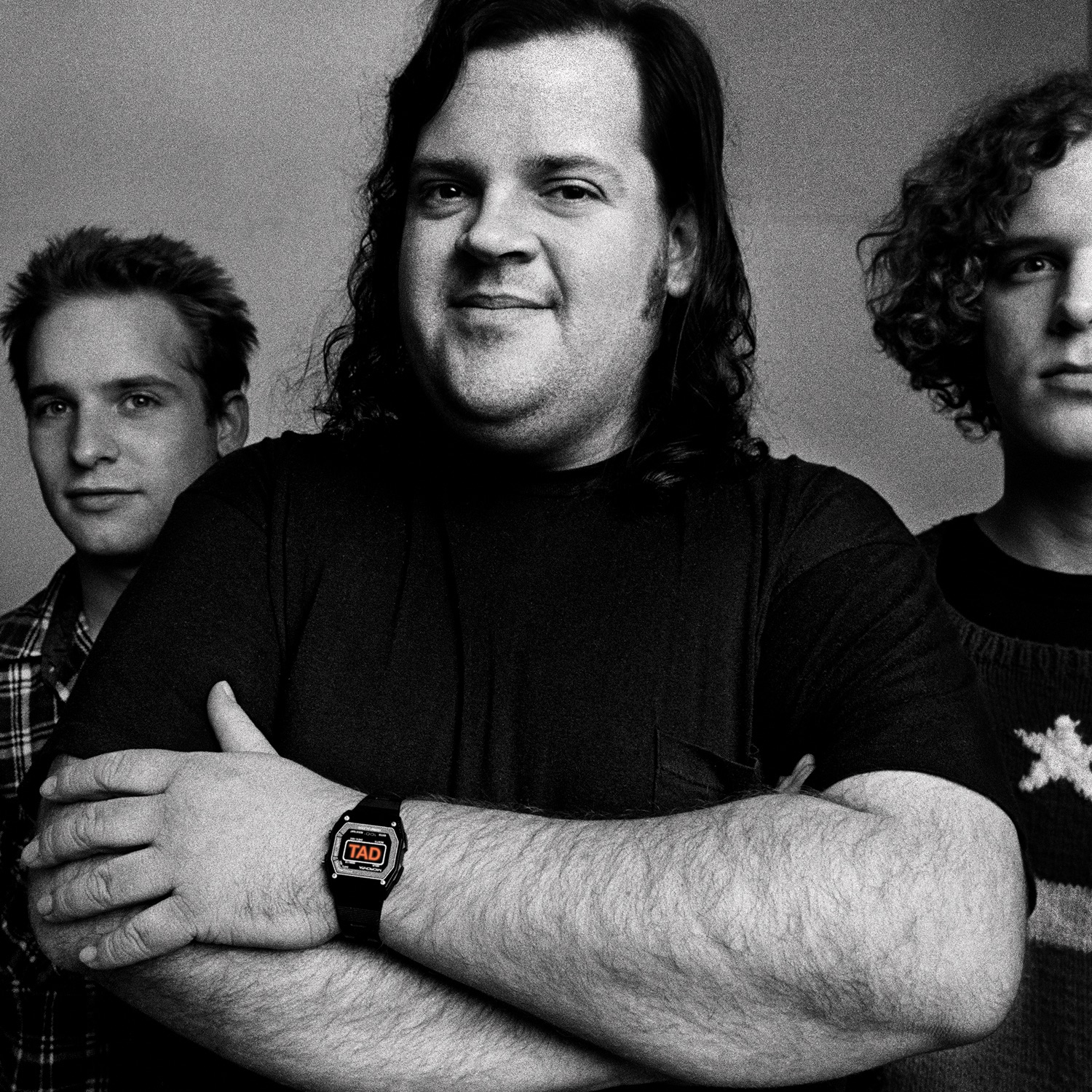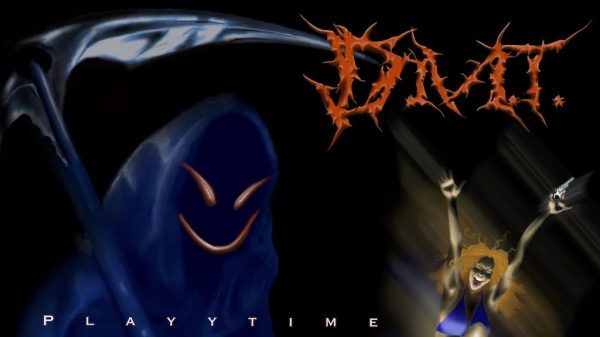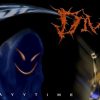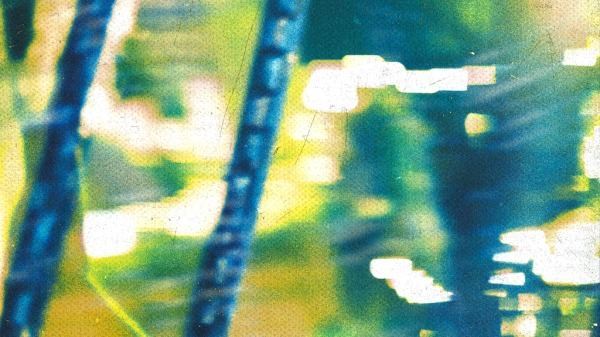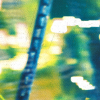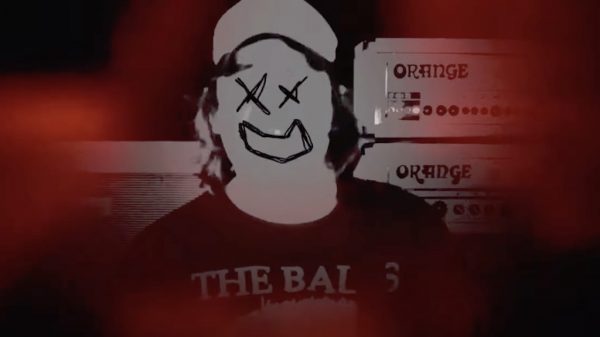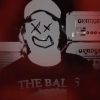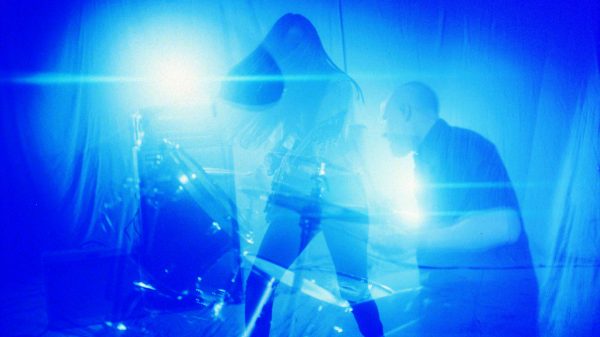Formed in the late 1980s by Tad Doyle, TAD was probably the heaviest and loudest band in Seattle’s so-called “grunge scene.” Despite a relatively short career, officially ended in 1999, the group’s albums remain influential and impactful today, more than 30 years after the release of their debut album, poetically titled God’s Balls (1988).
After that, Doyle formed other equally heavy bands, especially Hog Molly, who practiced a sound more in line with TAD and released just one album, and Brothers of Sonic Cloth, responsible for one of the best metal albums of the last decade, the self-titled debut released in 2015 by Neurot Recordings.
More recently, the musician started to dedicate himself more to his work as a sound engineer and music producer, from his studio Witch Ape in Seattle, besides starting a solo career, under the name Thomas Andrew Doyle, that carries a more symphonic and experimental sound, far from the more traditional rock and metal approach.
In this interview, done last June, Tad talks about his work as a producer, what it was like to work with names like Steve Albini and J. Mascis, his friendship with YOB’s Mike Scheidt, recalls TAD’s legacy, reveals what was the first instrument he played and points out which records changed his life.
First, I wanted to talk a little bit about your work as a producer. How did you get into it? I mean, you worked with some of the most famous producers in the 1980s and 1990s, like Steve Albini, Jack Endino, Butch Vig and J. Mascis. Were you maybe directly influenced by working with them? And did you already think back then about working as a producer?
Tad: No, I didn’t even think this was…I’ve always been interested in this, I always recorded stuff. Like a lot of guys, I had a Ghetto blaster (recorder), that had two cassette decks on it. And that’s how I started, bouncing tracks back and forth between the cassettes. Then eventually I was really stoked to get a four-track cassette recorder. And that was probably in the early 1980s. So I’ve been into that, got a little mixing board and all that stuff. And as of 2006, when I moved back to Seattle with my wife, that’s when I really got deep into it. Because of the advances of being able to work with an application in your computer to record things. That’s really where things took off for me and that’s when I really got deep into it.
Certainly, I paid a lot of attention to the guys, like Butch Vig, Endino and Albini. I don’t think I would call J. Mascis a producer. He didn’t really have much to do with the record (“Inhaler”, 1993). I mean, he got a credit on it, but probably the greatest thing that he did was to suggest that we would go to a studio that was more well-equipped and had their equipment maintained. But other than that, he was pretty much sitting in the back of the couch with sunglasses on. And I swear to God he was napping the whole time, except when it came the time to eat something (laughs). So, he didn’t really make a lot of contributions. But John Agnello was actually the guy that really finished up the record – “Inhaler”.
About two years ago, you released your first solo record, in which you use your name, Thomas Andrew Doyle. It has a more experimental, kind of soundtrack vibe, I thought about Phillip Glass, Ennio Morricone and Bernard Herrman, while I listened to it. So, I would to know how did you have the idea for a record like this? Were you maybe a little bit tired of the more traditional approach to rock and metal?
Yeah, all those things. Certainly, I have a history of symphonics – I went to school and studied it. I was in band in high school, then I went to college to study music and music theory. I’ve always had that interest, and I think some of the hugest music out there has been symphonic work and it just sounds immense. My friend Mike Scheidt, from YOB, he and I share that philosophy and that’s one of the things that brought me to YOB. It’s that they have that epic – for lack of a better word – big production, and the long, big changes to their songs that were pretty much a staple of a lot of symphonic works.
I had a friend back east, still do, Peter Scardebello, and he’s a composer. I’ve known him since the MySpace days and have been keeping in touch with him this whole time – in fact, we talked the other day. And we’ve been down this road together, he’s way more experienced than I am, but it’s good to have friends like that. This is kind of where I want to go now. It’s wide open for me.
And did you ever think about doing a live concert with an orchestra or something like that?
Absolutely. I would have to score everything out. And I guess that would be something that I would have to do and would be time consuming. Because I do things really organically here. A lot of MIDI instruments. But my goal before I die is to have the Seattle Symphony – or another symphony orchestra – play one of my records or works. Then I could die a happy man (laughs).
You talked about Mike from YOB. From what I’ve read, YOB has been an important band in your life and you even produced his solo album, which is a really beautiful record. When you first heard YOB, was there something kind of new, that enlightened you in some way to search or to create news forms of music, like Brothers of the Sonic Cloth?
Absolutely. In fact, I was brought to YOB by my wife, Peggy, who was friends with of one their best friends, Jen. They went to see YOB in Seattle and when she came home, she was so excited, she was like, “You’ve got to see this band. They’re amazing, unlike anything I’ve ever seen and heard.” And it got me excited, so we would sit and listen. To be honest, that was the first band in a while that really got me excited. I’m an old guy, so I’ve got a lot of music history and I listened to a lot of music. But they really touched me, they brought me to tears with their songs. It was just so perfect and beautiful and amazing.
And how producing Mike’s solo record, Stay Awake (2012)? It’s a really beautiful album, that has a more mellow, 1960/70s kind of vibe.
It was an honor, and certainly a pleasure. More than anything, it was really fun to hang out with him and be on this musical journey with a guy that I really respect musically. He is very, very talented, and has a lot of heart as well as technical ability. But he really relies on his heart for his music. And that’s where I identify with him. That record is all him, I was just able to be there, set up mics and help translate what he was doing to the music – and to be recorded that way.
By the way, did you ever think about doing a solo record, more like an acoustic/folk thing, like Mike and the guys from Neurosis have done in these last years, for example?
I have thought about it. It’s something that’s been in the back of my mind. And at the end of the day, there’s lots of things that I want to do, I’ve just to got pick what I’m going to do. And right now, the recording, mixing, engineering and producing is really where my heart is. And writing my music on the side – that’s where I am at. Yeah, I would love to play a solo thing, eventually. It’s like Mike says, “It’s a different thing, you’re very naked and everybody is looking at you.” And that’s kind of why I always liked being in a band, it’s like, “I’m not the only one there.” So, it’s definitely a different animal.
Since we are talking more about this sludge/doom scene, how was recording and releasing the Brothers of Sonic Cloth album, and later touring with Neurosis and playing Roadburn, which is a really important/iconic festival?
Well, it was very fun. I feel blessed and honored that I’ve been able to do these things with my band and the people I’ve been around. It’s been amazing the musicianship that I get to play with my wife, Peggy, and Dave French, the drummer – and we had a second guitar player that with brought with us for touring, Pam Sternim. I’ve been blessed to be able to work with a lot of great people, and that goes back all the way through my music career. Being able to play Roadburn was amazing, I got to meet so many of my contemporaries and people who I really, really admire. It was mind blowing, just to be able to tour and be out doing music. It’s an amazing thing.
By the way, did you already know the guys from Neurosis? Because you released the Brothers record through their label, Neurot, and later toured with them. Were you already close with them back in the 1990s?
Well, my band TAD played with Neurosis well back then, somewhere in San Francisco – I don’t remember. It was great to meet those guys. And we shared some of the same things, you know? They went to Steve Albini to record their records because they heard what we did with Salt Lick (1990) with Albini, I guess. Steve (Von Till) was telling that he loved the feedback and the way things were captured, so that might have been one of the reasons for them to work with Albini. And I just have been in touch with those guys. I respect Neurot and Neurosis. Those guys are the real deal, they take care of each other. I sent off the demo for our record to them and they were into it. So I’m grateful, you know?
And was it too different for you to write this more metal record – not the TAD wasn’t metal, you obviously had a lot of different influences – which is a really, really heavy album, but also with some beautiful and more melodic parts?
Yeah, certainly a lot of the bands that I grew up listening to and on through the point in which we actually created it, this record. The Brothers of the Sonic Cloth debut was in the making probably since 2006 – and it didn’t come out until 2015, I guess. So it was not an overnight snap thing. Part of it was having a hard time finding a drummer that was committed and could actually share the vision of what I had for the band. And we finally found Dave French to do that and Peggy has been solid with her bass since the beginning. It is a little different, I was definitely…I got to say I admired a lot of the things that a lot of the bands had been doing and I still listen to new music all the time. And that has been helpful, we feed off each other. That’s what inspiration is to me, it’s like recognizing in other musicians and music things that resonate with you. That’s where my heart is, and I can do that with a lot of people and a lot of bands.
From what I’ve read, you started playing as a drummer. So, I wanted to know how old were you and who were your heroes back then?
Well, before I started to play drums, I was actually playing tuba for two years. My parents said, “If you want to play drums, first you have to play the instrument that we have in the house,” and that was my grandpa’s E-flat tuba. And it was very embarrassing to be the fat kid walking to school with a tuba – it didn’t even have a case. So that was my formative years. Then in 6th grade I started playing drums. I wanted it so bad that I kept going after it and practicing a lot. And I did that right on through to my moving to Seattle, in 1986. I was playing in a band called H-Hour at the time.
Do you feel that the fact the you first started as a drummer before being a guitar player and singer, as other people like Chris Cornell and Dave Grohl, gave you a wider view about songwriting and how to approach when you´re creating a new song?
Oh, definitely. I mean, it helps to understand time and timing. And having that background of being able to structure things, different time signatures and what not. That definitely helps me in my job now, more than anything. Because I can actually communicate to a drummer, like, “This was good,” “We need to work on this” – that type of thing. But yeah, it definitely helps the knowledge and the feeling of creating music. To be able to understand those and actually have an experience with it, for sure.
Moving back to TAD a little bit. Do you think that the band maybe didn’t get the recognition the it deserved? I mean, with all the different problems you had with labels and everything.
No, I think that the band got everything it deserved. And that’s the good and the bad, like any band. I feel that we’ve always been different in the way that…a little bit more bombastic – and probably cutting edge for the time. I think that as a band, TAD really pushed the limit and took it as far as it could go, especially what we were doing.
Unfortunately, there’s a lot of things that come into play for bands and one of them is that a lot of people judge you by the way you look. And this is even more true, I’m sure, with women. They know this better than anybody. That if a man looks at them and says that they are not quite as pretty as another girl, that’s hard to take. I’m not saying that it was hard to take for us. We enjoyed it, we enjoyed being called an “ugly band,” because we felt that embodied the music to it in a certain extent. But as far as success, we feel ourselves, the band has been very successful. And it’s not over yet. The music that we did is still out there, it’s still timeless. And people are discovering it every day. I’ve got people writing me all the time, saying, “I didn’t know about you guys.” It’s inspiring to be able to affect other people like that. So, I mean, it’s good (laughs).
And did you ever think about doing a reunion, like other bands from that time have done?
Well, we’ve been asked to do that, numerous times. And these are my thoughts on that. At the time, the band was a machine, we were at the top of our game. But my heart isn’t in that music anymore, I’ve moved on. And I’ve tried to stay present in what I’m doing. So that’s history to me. I think it would almost be doing the music a disservice if we played a reunion show. And I feel that way about other bands that play reunion shows. It’s like: “Why are you doing this? Are you doing it for money? Are you doing it because it’s an ego thing?” But I just feel that sometimes it depreciates from what the band created to begin with. If you are a band that’s stayed together for all these years, like AC/DC and Neurosis – that’s different. But my heart isn’t in the same place it was then. I think differently now, and I feel differently. I’m all about making things happen in the now and in the present. Going back and trying to remember those songs…it wouldn’t be very fun for me, to be honest.
What are your best memories from this time with TAD? You had legendary tours, like the one with Nirvana in Europe, and also others with Soundgarden and Alice in Chains during the “Inhaler” time. Besides that, you released amazing records, like “8 Way Santa,” which is a great album to this day.
Well, for me it’s all those times when we were out playing shows throughout the years – and the things that nobody else witnessed, but us, as the band. When we were in the van together, laughing, and the camaraderie that we had. And being together as a tribe was just an amazing thing, the feeling of being invincible because we were four guys going in the same direction – musically and otherwise. To me, it’s those moments, and there are so many of them. And recording, playing shows, that’s all great, but the personal interactions that we had, that nobody will ever get to see, that’s priceless to me.
And do you guys still talk frequently?
Yeah, absolutely. Kurt (Danielson – bassist) is busy writing a book right now. And he is also doing some other projects, musical projects. And I just spoke to Gary (Thorstensen – guitarist), we keep in touch. Steve, the original drummer, lives up in the north Seattle area and every now and then I get a call from him. We see each other on Facebook, which I’m really not a fan of, I don’t like Facebook much. Then there’s all the other people that I played with, we keep in touch, certainly.
Please tell me three records that changed your life and why they did it.
Oh man, just three? Oh man. Well, Black Sabbath’s Black Sabbath (1970). My older brother gave me that record for Christmas when I was a kid. That was game changer for me. And my parents weren’t happy about that record either.
Another one would be AC/DC’s Let there Be Rock (1977). Also Frank Zappa and The Mothers of Invention’s One Size Fits All (1975), Rush’s 2112 (1976), Rush’s All the World’s a Stage (1976). Any Neurosis record, any YOB record. All the Pink Floyd records (laughs). I could go on and on, dude (laughs).
These are the last two questions. What are you most proud of in your career?
Hmm, that’s a good one. What am I most proud of in my career? Oh, Ok. Sticking with it and doing it despite of what other people thought. And keep moving forward. You know, there’s going to be people out there that are negative and say shitty things to people. And that’s what I’m most proud of, that I persevered and kept moving forward. Bottom line: you can’t please everybody. And who would want to, right? (laughs).
How do you want to be remembered after you are gone?
Ohhh, I don’t care. I don’t care if anybody remembers me. I think my work is done. When I die, I think my work will be done – but I’m not done yet. Maybe just as somebody who cares and gives a shit. And somebody that kept moving forward, that’s what I want to be known for.

